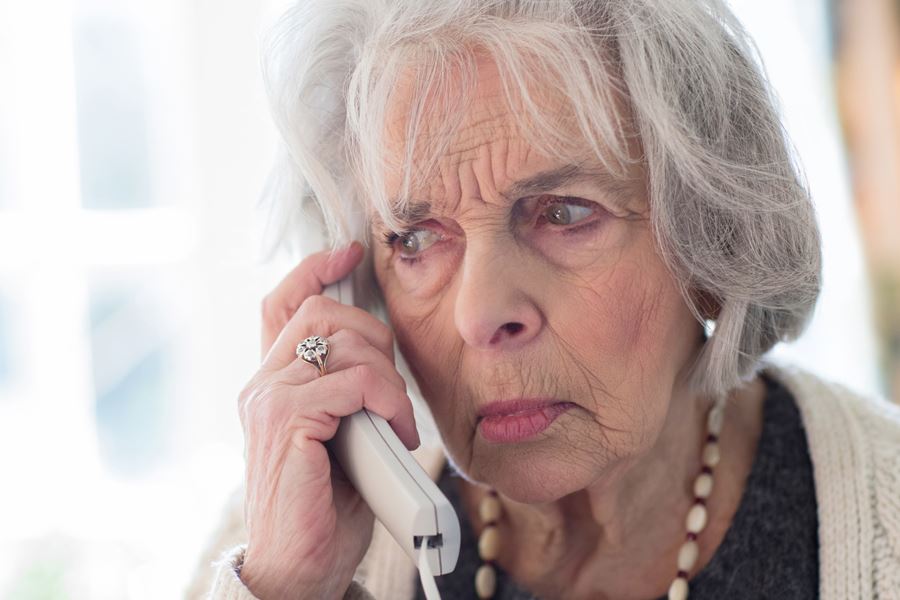In the recent Netflix hit I Care a Lot, Rosamund Pike plays a scam artist who swindles elderly persons of financial means. Inspired by true events, the Golden Globe-winning dark comedy is also a serious warning against elder fraud, which has risen sharply during the COVID-19 pandemic.
In the film, Pike’s character Marla Grayson uses both illegal and, disturbingly, perfectly legal means to become a court-ordered legal guardian for seniors, then sells their property and empties their bank accounts, with her victims’ families being none the wiser.
In reality (and to be clear, the movie is not realistic), if a court determines that an individual is at risk because they can’t make decisions for themselves—and they do not have the appropriate legal documents in place where they nominated their trusted family or friends to make decisions for them—the court can appoint a third party, called a “guardian” or “conservator,” to make these decisions.
It’s meant to be a protective measure, and the guardian is usually a family member or other loved one with the senior’s best interest at heart. In instances of family discord or no family members present, the court typically chooses trusted and trained professionals from a list.
But, since the appointed guardian is given the authority to make some or all of the legal decisions regarding the senior’s life, it’s also rife for exploitation by unscrupulous guardians.
In fact, elder fraud, abuse, and neglect have risen so sharply during the pandemic that the Department of Justice, the US Attorney’s Office, and several other federal and state agencies have recently launched a joint Elder Fraud Prevention Campaign during COVID-19.
Even before the pandemic, it was estimated that elder financial fraud and exploitation costs seniors at least $2.9 billion annually, with an average loss of $30,000, and that about 1 in 10 adults over 60 in the US experiences some form of elder abuse.
Reports of elder financial exploitation rose by 45% in New York State, while in Nassau County elder abuse arrests nearly tripled in 2020.
Elder fraud is too varied to be comprehensively listed here, but some of the most common methods are:
- Identity theft
- Stolen bank account or credit card information, either physically, through the phone, or through an unsecure online purchase
- Other phone scams, including
- unsolicited calls from people pretending to be the senior’s kids or grandkids asking for money (often for an “emergency” like legal fees or jail bond)
- calls claiming to be from the bank, credit company, insurance company, etc., asking for personal and financial information (also often “urgent,” to prevent fines, foreclosure, etc.)
- calls claiming to offer COVID-19 testing or vaccination that ask for personal and financial information
- Other payments or money transfers solicited from willing persons with dementia
- Fake websites and popups
- Forged checks
- “Friendly,” nonviolent home burglaries (often invited in by the elder)
- Theft or other financial fraud by legal guardians, agents under other legal documents, caretakers, family, or another close person
More information and resources can be found at justice.gov/elderjustice.
Anyone can fall prey to elder fraud or abuse. No one should be embarrassed or ashamed, as scammers can be very creative, crafty, and convincing. If you believe that you have been victimized, it’s important that you file a report and seek assistance from your county’s district attorney’s office.
Additionally, the best and most effective way to ensure that you or your loved one are protected against fraud or abuse is through comprehensive estate planning.
Preparing your estate plan enables you to appoint trusted individuals to serve as your caretakers and agents under a power of attorney and/or health care proxy, allowing them to assist you and make decisions on your behalf during your life.
Estate planning also allows you to protect assets and secure future financial independence through the use of various planning tools, allowing you to outline how you want your assets held and distributed, both during your life and after your death.
If you have any questions or require any assistance, contact us. We’re here to help.
Constantina Papageorgiou is a partner in Vishnick McGovern Milizio LLP's Trust and Estate and Elder Law Practices, focusing on estate planning and administration and elder law matters. She can be reached at cpapageorgiou@vmmlegal.com and 516.437.4385 x141



